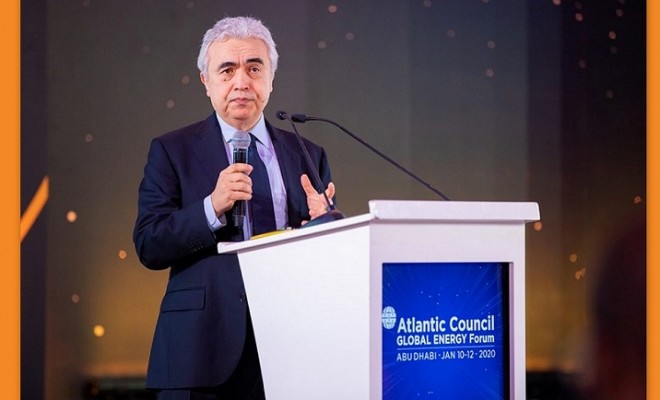
Climate commitments needed to head off threats of volatility and instability
A widening gap between perceptions and reality of the global energy markets could increase volatility as governments, policy makers, and industries struggle to tackle climate change, according to Fatih Birol, the executive director of the International Energy Agency.
The coming decade will also see growing calls for action on climate change, with a chorus of governments pledging to meet ever-stricter targets on carbon emissions and renewable energy deployment.
But here, there is a considerable disparity between perception and reality, something the IEA is dedicated to exposing through data. On one hand is the growing chorus of international summits, government targets, and pledges, while on the other, global CO2 emissions last year reached a historical high.
“I think the risk is not looking at the numbers carefully; looking at the numbers that we like to see rather than the entire numbers,” Birol said at the Atlantic Council Global Energy Forum on January 11, hosted as part of Abu Dhabi Sustainability Week.
Take the rapid growth of global coal consumption, the single biggest driver of carbon emissions, up 65 per cent since the turn of the millennium. This has been driven largely by Asia’s insatiable appetite for electricity, and now represents 80 per cent of all demand currently.
With the average age of new power plants at just eleven years old, few countries will be willing shutdown operations. “Who will shut it down because of [climate change] before the money is not paid back just to be a good global citizen,” Birol asked.
This is the dilemma. After all a ton of CO2, whether from Mumbai or Detroit, has the same effect on the atmosphere. The impact of reducing emissions is not equally felt, however.
“In Europe coal plants are generating electricity for the fourth television set in the kitchen. But in Asia, in many poor countries—in India and elsewhere—they are generating electricity for the refrigerator in the villages for the parents to keep their medication for their children,” Birol explained.
Some, like General James L. Jones, Jr., the Atlantic Council’s Executive Chairman Emeritus, argued this is a moral question.
“The energy-have nations are morally obligated, it seems to me, to not only lead the global discourse but to share with the have-not nations the technologies to allow them to skip the pollution years in their development and to better provide for their people,” Jones said.
Climate, economic, and geopolitical pressures all present major challenges for policy makers who face increasingly hard choices which could have long-lasting implications. “As the world drifts towards a new bipolar framework,” Jones said, “bookended by the United States and a rising China, energy will play a pivotal role.”
Failure could further destabilize the world’s fragile conflict zones, and place enormous stress on global governance structures. “Indeed, climate-fueled natural disasters have cost the economy almost $1 trillion over the last five years,” Jones explained.
“So the energy transition that we’re talking about and have been talking about over the last four years is driven in part by the quest to avoid these costs and will require massive investment, but if implemented correctly will bring about countless benefits and will become the driver of economic growth, innovation, and energy security for all,” said Atlantic Council president and CEO Frederick Kempe.
Συνέχεια ανάγνωσης εδώ



